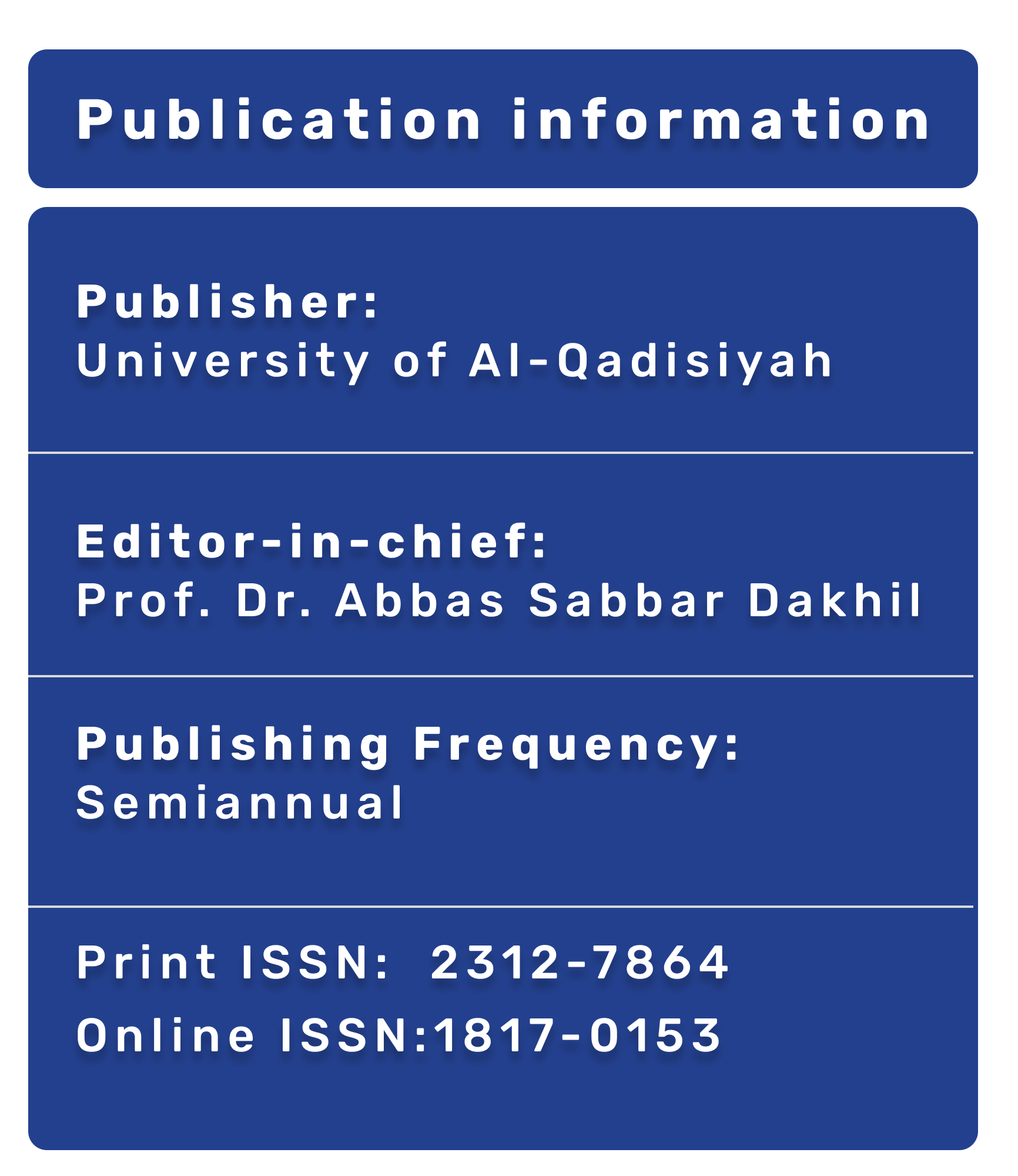Most read articles by the same author(s)
- Manal M. Khadhim, Nasma N. AL-Hajia, Fadhil H. Khleif, The Role of Protein Tyrosine Phosphatase Nonreceptor Type 22 Gene polymorphism in Patients With Type 1 Diabetes Mellitus. , AL-QADISIYAH MEDICAL JOURNAL : Vol. 12 No. 22 (2016)
- Manal M. khadhim, Meraim A. Kazaal, Antibiotics Resistance and Integron Class 1 among Commonsal Escherichia coli , AL-QADISIYAH MEDICAL JOURNAL : Vol. 13 No. 24 (2017)
- Manal M. khadhim, Meraim A. Kazaal, Association Between Antibiotic Resistance and Integron Class2 Among Commonsal Escherichia coli Genotypic Groups , AL-QADISIYAH MEDICAL JOURNAL : Vol. 14 No. 25 (2018)
- Manal M. khadhim, Ali T. AL-Damerchi, Meraim A. Kazaal, Evaluation of A Disintegrin and Metalloprotein33 Gene Polymorphism in Bronchial Asthma , AL-QADISIYAH MEDICAL JOURNAL : Vol. 11 No. 19 (2015)
- Taghreed S. Al-Quizwini, Bromocritine Treatment in Infertile Population of Women with Galactorrhea , AL-QADISIYAH MEDICAL JOURNAL : Vol. 10 No. 17 (2014)








